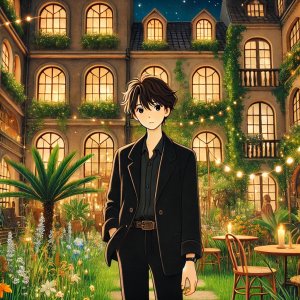This review may contain spoilers
Not Just Hearing Thoughts, But Hearing the Hurt No One Speaks
I Hear Your Voice didn’t just pass through me like another courtroom fantasy — it settled in that quiet part of me that remembers what it’s like to be unseen, unheard, misunderstood. What caught me off guard wasn’t the supernatural twist, or the legal drama framework — it was how deeply the show understood what it means to carry the weight of memory, injustice, and those unsaid things that gnaw at people from the inside out.
Lee Jong-suk’s Park Soo-ha isn’t your standard telepathic prodigy. He’s a teenager who’s been clinging to one memory like it’s oxygen. There’s a fragility to him that never slides into weakness, and a stubborn determination that isn’t fueled by arrogance, but by grief. He doesn’t read minds to be clever — he does it because the world has already taught him that people lie, and sometimes, it’s the only way to stay sane. Jong-suk plays him with this mix of youthful rawness and old-soul exhaustion, and I found myself rooting for him harder than I expected, not because he was special, but because he was so painfully human underneath the ability.
And Lee Bo-young’s Hye-sung? She’s a breath of fresh air in a genre that too often sanitizes female leads. She’s sharp-tongued, emotionally closed-off, self-protective in a way that’s both frustrating and completely understandable. She doesn’t walk around ready to save the world; she drags herself through the muck of it, reluctantly getting involved when she can no longer justify standing on the sidelines. Watching her walls chip away, watching Soo-ha’s relentless belief chip at her bitterness — that dynamic was more than romance. It was redemption, survival, and the slow reclaiming of dignity.
The courtroom sequences — surprisingly gripping. Not always perfectly realistic, but always emotionally charged. Every trial felt like an echo chamber for the characters’ internal battles. It wasn’t about who won the case on paper — it was about who got to be seen, whose pain was acknowledged, whose voice carried weight for the first time.
Sure, the show stumbled here and there. The tonal shifts — veering from thriller to slice-of-life awkwardness to romance and back — occasionally tripped over themselves. The back-end dragged in parts, and not every plot twist felt fully earned. But the core? That stayed steady. A story about listening beyond the words, about not brushing past the bruises people hide behind smiles, about learning that justice isn’t just something served in court — it’s in the small, relentless acts of choosing to care.
I Hear Your Voice didn’t just entertain me. It reminded me what it feels like to be heard — in all your fear, your fury, your quiet longing to be understood. And for that, it earned a spot in the part of my memory that refuses to fade.
Lee Jong-suk’s Park Soo-ha isn’t your standard telepathic prodigy. He’s a teenager who’s been clinging to one memory like it’s oxygen. There’s a fragility to him that never slides into weakness, and a stubborn determination that isn’t fueled by arrogance, but by grief. He doesn’t read minds to be clever — he does it because the world has already taught him that people lie, and sometimes, it’s the only way to stay sane. Jong-suk plays him with this mix of youthful rawness and old-soul exhaustion, and I found myself rooting for him harder than I expected, not because he was special, but because he was so painfully human underneath the ability.
And Lee Bo-young’s Hye-sung? She’s a breath of fresh air in a genre that too often sanitizes female leads. She’s sharp-tongued, emotionally closed-off, self-protective in a way that’s both frustrating and completely understandable. She doesn’t walk around ready to save the world; she drags herself through the muck of it, reluctantly getting involved when she can no longer justify standing on the sidelines. Watching her walls chip away, watching Soo-ha’s relentless belief chip at her bitterness — that dynamic was more than romance. It was redemption, survival, and the slow reclaiming of dignity.
The courtroom sequences — surprisingly gripping. Not always perfectly realistic, but always emotionally charged. Every trial felt like an echo chamber for the characters’ internal battles. It wasn’t about who won the case on paper — it was about who got to be seen, whose pain was acknowledged, whose voice carried weight for the first time.
Sure, the show stumbled here and there. The tonal shifts — veering from thriller to slice-of-life awkwardness to romance and back — occasionally tripped over themselves. The back-end dragged in parts, and not every plot twist felt fully earned. But the core? That stayed steady. A story about listening beyond the words, about not brushing past the bruises people hide behind smiles, about learning that justice isn’t just something served in court — it’s in the small, relentless acts of choosing to care.
I Hear Your Voice didn’t just entertain me. It reminded me what it feels like to be heard — in all your fear, your fury, your quiet longing to be understood. And for that, it earned a spot in the part of my memory that refuses to fade.
Was this review helpful to you?







